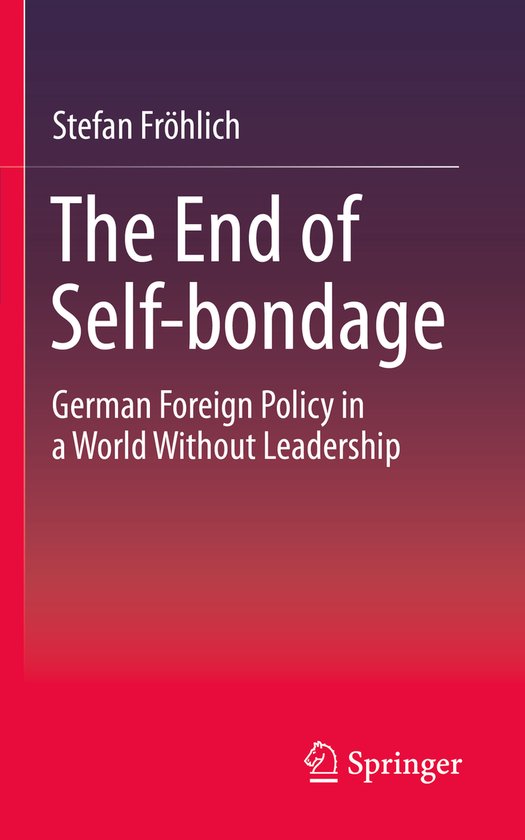
The End of Self bondage
Europe is in a permanent state of crisis: nationalisms, brexit and seemingly insurmountable differences on issues of migration, reforming the euro zone and improving its global competitiveness are threatening the cohesion of the Union. At the same time, external pressure from Russia and China, developments on the southern periphery, and not least in the United States, is growing. Trump's election not only disintegrates Germany's foreign policy coordinate system, but also turns the liberal international order upside down. Against this background, Stefan Fröhlich argues for a reassessment of Germany's role in Europe and the world in this political essay: Germany's foreign policy is better than its reputation. In recent years, the country has long since broken with numerous taboos and assumed leadership in Europe. This is one of the reasons why the accusations of those who continue to lament German complacency but at the same time evade global leadership and responsibility themselves sound downright cynical.
This book is a translation of the original German 1st edition Das Ende der Selbstfesselung by Stefan Fröhlich, published by Springer Fachmedien Wiesbaden GmbH, part of Springer Nature in 2019. The translation was done with the help of artificial intelligence (machine translation by the service DeepL.com). A subsequent human revision was done primarily in terms of content, so that the book will read stylistically differently from a conventional translation. Springer Nature works continuously to further the development of tools for the production of books and on the related technologies to support the authors.
The Author
Dr. Stefan Fröhlich is Professor of International Politics and Political Economy at the University of Erlangen-Nuremberg and teaches at various renowned universities in Germany and abroad. He is equally well known in academia, the public and the media as a proven expert onGerman foreign policy.
Europe is in a permanent state of crisis: nationalisms, brexit and seemingly insurmountable differences on issues of migration, reforming the euro zone and improving its global competitiveness are threatening the cohesion of the Union. At the same time, external pressure from Russia and China, developments on the southern periphery, and not least in the United States, is growing. Trump's election not only disintegrates Germany's foreign policy coordinate system, but also turns the liberal international order upside down. Against this background, Stefan Fröhlich argues for a reassessment of Germany's role in Europe and the world in this political essay: Germany's foreign policy is better than its reputation. In recent years, the country has long since broken with numerous taboos and assumed leadership in Europe. This is one of the reasons why the accusations of those who continue to lament German complacency but at the same time evade global leadership and responsibility themselves sound downright cynical.
This book is a translation of the original German 1st edition Das Ende der Selbstfesselung by Stefan Fröhlich, published by Springer Fachmedien Wiesbaden GmbH, part of Springer Nature in 2019. The translation was done with the help of artificial intelligence (machine translation by the service DeepL.com). A subsequent human revision was done primarily in terms of content, so that the book will read stylistically differently from a conventional translation. Springer Nature works continuously to further the development of tools for the production of books and on the related technologies to support the authors.
| Auteur | | Stefan Fröhlich |
| Taal | | Engels |
| Type | | Paperback |
| Categorie | | Mens & Maatschappij |


